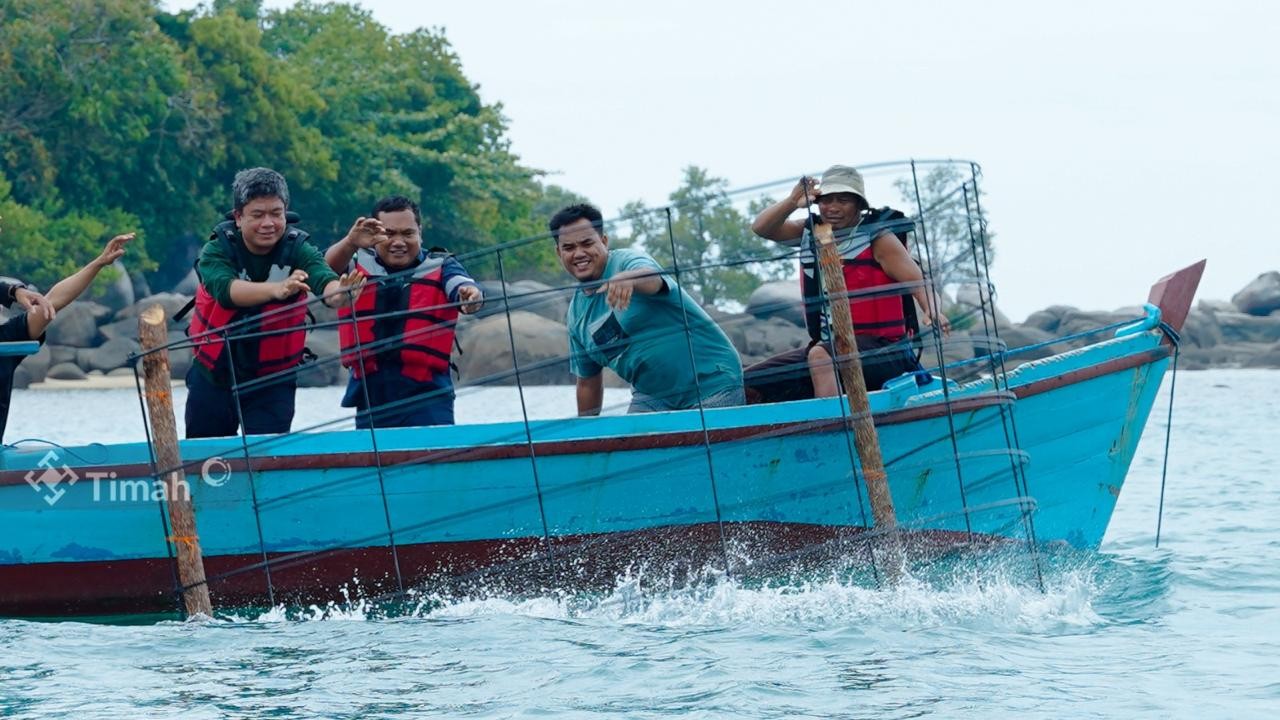
PANGKALPINANG -- PT Timah's commitment to support the preservation of marine ecosystems continues to be implemented consistently. Through various programs, one of which is the coral garden implemented in Bangka Belitung Islands Province.
Coral garden sinking is PT Timah's real step in maintaining the marine ecosystem while supporting the development of underwater tourism potential in coastal areas.
Between 2022-2024, PT Timah will sink 157 coral garden units including Putri Island, Bangka Regency and Panjang Island in Central Bangka Regency,
The sinking of coral garden structures is carried out in stages by involving the diving community, local fishermen. The structure is designed to be a place for new coral reefs to grow, which is expected to become a habitat for marine biota and improve the quality of the aquatic environment.
Some of the coral gardens that have been sunk by members of the MIND ID Mining Industry Holding have shown success, such as in the waters of Putri Island. Where the coral garden that was sunk has been attached to natural corals and become a place for fish to play.
Besides aiming to maintain the balance of the marine ecosystem, the coral garden is also expected to become a new marine tourism attraction that can boost tourist visits. With the underwater beauty that continues to be maintained, the surrounding community can feel the economic benefits of the tourism sector in a sustainable manner.
“PT Timah continuously carries out the sinking of coral gardens. This is one of the company's commitments in supporting the preservation of marine ecosystems. Healthy coral reefs will attract more fish and other marine life, and create underwater scenery. This can be utilized as a tourist spot,” said PT Timah Head Corporate Communication Department, Anggi Siahaan.
According to her, PT Timah is also committed to continue monitoring the development of this coral garden periodically, in collaboration with academics and local communities to ensure optimal coral growth.
Meanwhile, University of Bangka Belitung Marine Science Lecturer Indra Ambalika said the sinking of the coral garden was a significant step in the third phase of the coral reef restoration program.
“We hope that the coral garden that has been built will grow into a fertile habitat for various marine life. Putri Island, with its rich marine biodiversity, has the potential to become a center for marine science research and development,” Indra was quoted as saying in a previous report.
Indra is also optimistic that the coral garden will become a new attraction for tourists, thus improving the economy of the surrounding community.
By planting coral species such as acropora and combining natural corals, it is believed that the coral reef ecosystem on Putri Island will soon recover. More than just a place to play with fish, this coral garden will become a home for various marine species. (*)